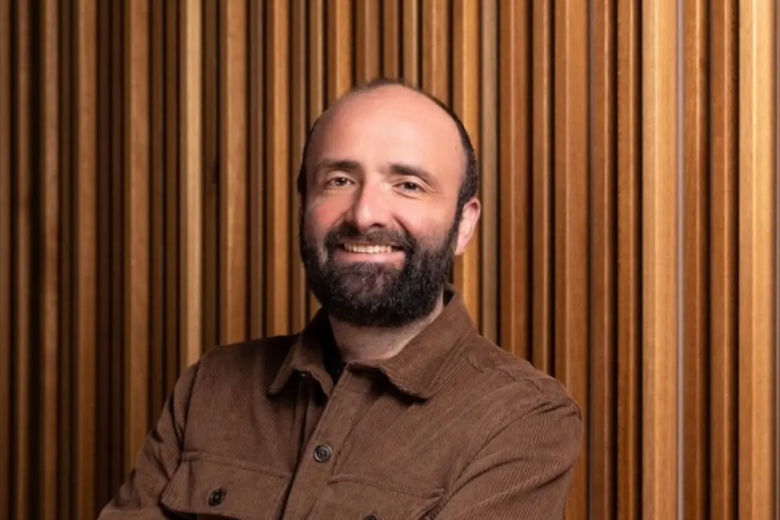Destructive Criticism…is certainly the most helpful criticism
"Destructive Criticism…is certainly the most helpful criticism", words of 20th century figurative painter Francis Bacon that symbolize the creative process in academic work. These words buttress my experience of presenting my work at the University of Agder, Norway.
On the 25th of May 2023, the GI-NI Scientific Conference "The impact of the Global Transformations On Inequality" was held at the University of Agder, in Norway. The Scientific Conference opened with leading addresses by Hans Kjetil Lysgård, Vice-rector of the University of Agder, and Steven Dhondt, Coordinator of the GI-NI project. The keynote speakers, Prof. Dr. Alexandra Spitz-Oener and Prof. Dr. Simon Wiederhold, provided deep insights into the interplay between labour and technological change, which were echoed throughout the day. The Parallel Sessions hosted 17 presentations spanning over three hours of research debates. Researchers from 10 nationalities covered multiple relevant topcis for the GI-NI project and those interested on analysing socioeconomic inequalities, such as gender, robots and automation, and global trade.
Beyond assimilating the depth of knowledge at this conference, I was invited to present my paper about the role of productivity catch-up on firm's demand for apprentices in Germany. In congruence with the keynote speakers, my paper shows how the financial mantra of "catching-up" to the industry frontier has perverse consequences on the demand for young workers who are trained in technical and vocational skills. In this paper, I conclude how institutionalized systems of skill formation among young workers, i.e., the dual system of apprenticeship training in Germany, is at a cross-roads with productivity growth objectives of modern firms. In presenting my work, I was able to engage in insightful dialogues with colleagues at the conference about the methodology in my paper, the message that I deliver and the theoretical grounds of my academic contribution.

Apart from my own presentation, I was able to network with fellow academics and got to know about the plethora of topics that are congruent to my work. I was also able to interact with the keynote speakers and got some useful "do's and don’t's" about publication in scientific journals. Overall, my experience at the GINI-Conference can be summarised by Francis Bacon in his interview with David Sylvester (c.a. 1980), "I think it would be marvellous to have somebody who would say to you, 'Do this, do that, don't do this, don't do that!' and give you the reasons. I think it would be very helpful." As young academics, I think the importance of such directions is crucial for pursuing enriched academic careers and experiences like these can only help.
Reaching for the top – How catching up to the productivity frontier influences a firm’s demand for apprentices
Abstract: Empirical literature on firm productivity documents a widening gap in productivity growth between firms within the same industry (Syverson, 2011). Although this literature emphasizes on the industry- and firm-level causes of this widening, consequences to firm behaviour as it closes the productivity gap represent an untapped research avenue. In this paper, we study how closing the productivity gap influences a firm’s training behaviour towards hiring apprentices in Germany. On the one hand, closing the productivity gap might have a positive effect on demand for apprentices due to increase in labour demand, presence of internal labour markets and monopsony power. On the other hand, changes to skill requirement due to technological intensity, competitive pressure and innovative pursuits might render firms to hire fewer apprentices. Using the IAB Establishment Panel - a representative establishment-level data for Germany, we use a hybrid negative binomial regression models to control for time-invariant unobserved heterogeneity at the firm level similar to Mundlak (1978).
We identify causal effects by using an instrumental variables approach where we estimate establishment-specific time-varying productivity shocks using the approach by Guiso et al., (2005). Our preliminary results show that a 1-percentage point increase in closeness to the productivity frontier contributes to a decline in demand for apprentices by approximately a fifth, holding other factors constant. Firms that are closer to the frontier have a larger negative effect than firms further away from the frontier. Moreover, we investigate the presence of substitution of apprentices for different categories of skilled workers. We argue that the negative effect is a consequence of firm’s shifting their skill requirement to a polarized within-firm skill distribution, i.e., exhibiting an increase in demand for high and low-skilled workers at the cost of medium skilled workers. Since the skill-requirement shifts against medium-skilled workers, firms have a perverse incentive to hire apprentices for those medium-skilled occupations when they catch up to the productivity frontier. Our study is consequential, since the financial “mantra” of catching-up to the frontier comes at the cost of the traditional and institutionalized system of apprenticeship training in Germany.
Also read
-
Aagje Swinnen awarded NWO Open Competition M
Aagje Swinnen (FASoS) and Sarah de Mul (Open University), have been awarded an NWO Open Competition M grant for the project “Re-Imagining Burnout and the Cultural Narrative of Productive Adulthood through Literature”.

-

-
Green light for UM participation in unique YUFE bachelor programme
The UM can start as a degree awarding partner in the new unique bachelor programme Urban Sustainability Studies offered by YUFE (Young Universities for the Future of Europe), an alliance of ten European universities. This week, the UM received a positive outcome of the macro due diligence assessment...
